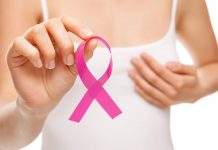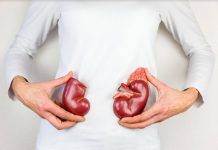 Wondering what the inflammatory breast cancer is? You have picked up the right choice.
Wondering what the inflammatory breast cancer is? You have picked up the right choice.
Just in a short while and just in a few seconds of reading you will find some really good information on the same.
An extremely rare, fast-growing and lethal form of breast cancer is the inflammatory breast cancer.
You’ll be surprised to know that it can spread in just a few weeks.
Unfortunately often it is mistaken for some other rash or infection rather than breast cancer itself.
In the United States it’s estimated that about 1%-2% of newly diagnosed invasive breast cancers are inflammatory breast cancers.
The median age range of inflammatory breast cancer patients is between 45 and 55 years old, but may be either younger or older.
Mainly due to delays in diagnosis, the lack of expertise in treating IBC and its resistance to treatment with standard chemotherapy drugs, the 5-year median survival rate is approximately 40%.
Diagnosis! On suspecting inflammatory breast cancer, the doctor may recommend a biopsy which involves taking a small sample of skin and tissue for analysis under the microscope.
If the biopsy results confirm that you have inflammatory breast cancer, the next step is to determine the stage of the disease in other words how advanced your cancer is.
Now let’s look into the typical symptoms of this type of disease:
First Note that because inflammatory breast cancer doesn’t occur as a breast lump and has a peculiar growth pattern, its symptoms are not typical signs of cancer, and may appear to be something else. Its symptoms may include:
- One breast larger than the other
- Red or pink colored area or skin, orange-like texture
- Swelling
- Rash (entire breast or small patches)
- Breast is warm to the touch
- Breast pain (from a constant ache to stabbing pains)
- Itching
- Ridges or thickened areas of breast
- Nipple discharge may or may not be bloody
- Nipples appear inverted or flattened
- Nipple retraction
- Swollen lymph nodes under the armpit
- Swollen lymph nodes of the neck
- Swelling, usually sudden, sometimes a cup size in a few days
- Ridges and thickened areas of the skin
- What appears to be a bruise that does not go away
- Change in color and texture of the areola
Don’t Neglect! It is important to talk to a physician if one or more of these symptoms continue for more than a week and find an expert with experience in treating this particular type of breast cancer.
Most of all the treatment of inflammatory breast cancer includes the systemic chemotherapy [Breast Cancer Chemotherapy]. This is followed by surgery which may be a breast-conserving surgery or total mastectomy, removing the effected breast, with lymph node dissection followed by radiation therapy.
Additional systemic therapy such as chemotherapy, hormone replacement therapy, or both may be given depending on the condition.
Statistics!! Know that every woman is at risk for this disease, and that risk increases with age. In women age 50 and older about 77 percent of this disease diagnoses occur. Surprisingly in women who have no identifiable risk factors also, seventy percent of breast cancers occur.















